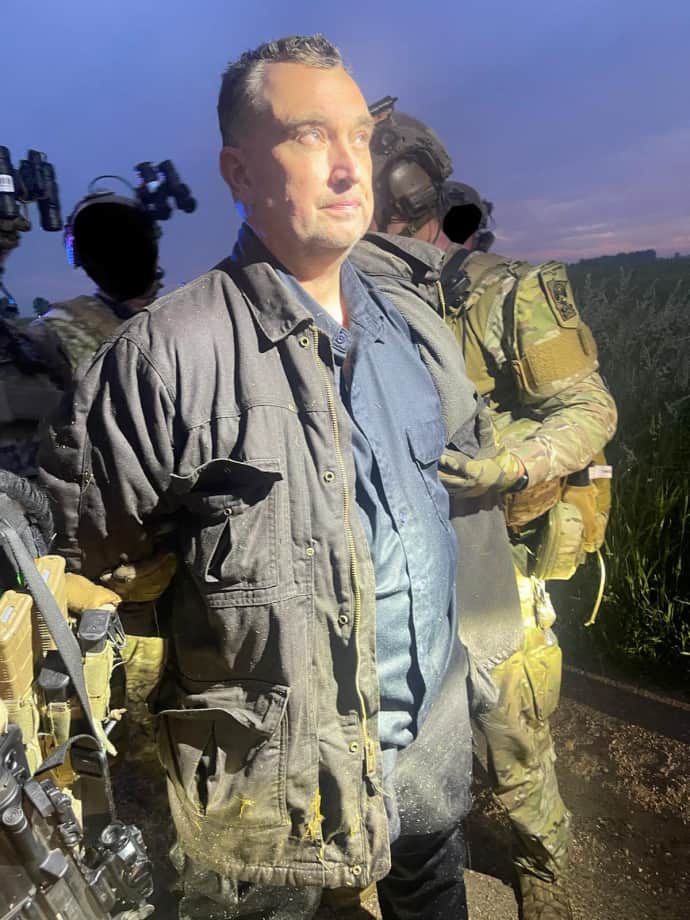Sandra Stiskalo about Gaza and a new book by Isabella Hammad

During a trip to the Golan Heights, it happened that the British-Palestinian writer Isabella Hammad stopped at a Kibbutz.
There she met a bearded man named David. He was out of the threads and asked several times if Isabella Hammad believed that man was capable of someday acting entirely as an individual or just as a representative of his group.
After a while, David told him that he had been stationed at the fence to Gaza. If someone came within a certain distance from the fence, his task was to shoot a warning shot in the ground. The person continued to approach – two warning shots. Did not turn the person if he would aim for the leg. So the order sounded.
One day a figure appeared. He went towards the guard post. When he violated the first border, David shot a shot in the ground. He continued to walk – two shots in the ground. The figure was approaching further. When David saw that he was naked and held a photograph of a child in front of his body, he put down his weapon and fled.
This meeting reproduces Isabella Hammad in her essay book « Aliens and recognition » (Book publisher Faethon, translation Ingela Nilsson). And certainly one can describe the event as the Israeli soldier David recognized man in the stranger and the stranger in himself.
Hammad’s authorship is full of such aha experiences. She herself called it her author-tics. Let me take another example. In the grand debut novel « Parisaren » the medical student falls in love with Midhat, calculated on Hammad’s old grandfather, in a French woman. But love takes an end with horror when Midhat discovers that the girl’s father makes notes on his language, way and « primitive brain ». He who had believed that the family regarded him as an equal, now looks reduced to « Arab ». The first of many course changes.
« Aliens and recognition » is from the beginning a lecture that Isabella Hammad held to the literary scholar Edward Said’s memory in September 2023, and is about these kinds of moments, ie when man is confronted with reality and everything is placed on his head. The text is centered around the concept Anagnoriswhich means just recognition. Aristotle used it to point out the occasion when the truth clears up for a role figure in a classic drama. A movement from uncertainty to insight. Hammad analyzes it carefully, in relation to world literature and his own writing.
Because she in her Novels, the latest « Vålnaden in » were published in Swedish last year, thematizes Palestinian experiences, she has often been asked if she writes to awaken the West. With her books does she want to make the reader realize that Palestinian reality is military occupation, settlement colonialism and external violence?

No, she has answered emphatically. I have myself interviewed her at one time and felt by her legitimate aversion to such eurocentric and reductive view of literature.
But of course that does not mean that anagnoris – recognition – is primarily an aesthetic or narrative technical phenomenon. On the contrary. In her essay, Isabella Hammad repeatedly emphasizes that it is a moment of political potential, because “we must recognize To be able to admit«
« Aliens and recognition » is thus a theoretical, curious and hopeful text. When it was written and performed in September 2023, Hammad’s confidence in literature and people was still striking.
Pennan’s Udd is directed at the public, the media and the world community, or what is left of it
But then it happened October 7, Hamas killed 1,200 people and kidnapped 200. Israel responded with total siege of Gaza. Tens of thousands of Palestinians have since died in Israeli bombing and starvation. And when « strangering and recognition » was to be published a year later, Hammad felt compelled to provide the text with an afterword. It is written in shock and horror, and with a directness that takes my breath away. The head of the pen is aimed at the public, the media and the world community, or what is left of it.
Like so many other live streams Isabella hammad, the still ongoing mass murder and the expulsion on the mobile. She listens to the rhetorical dehumanization that always precedes ethnic cleansing. « No electricity, no food, no fuel, everything is closed. We are contrary to human animals, » as Israel’s then Defense Minister Yoav Gallant put it in 2023.
As a reader, it is difficult to shake off the spooky experience that the text as well as haunting its writer and requires revision
The analyzes have become meaningless, literature and theories no longer complain. « To remain a man in this situation is to remain in the anguish, » she writes in the afterword.
On the brink of the abandonment Isabella returns to the subject of the lecture that she held in another world and another time. As a reader, it is difficult to shake off the spooky experience that the text as well as haunting its writer and requires revision.
For the question that Isabella Hammad indirectly but ultimately asks is how many Palestinians have to die for the world to recognize Palestinians as human beings.

There seems to be no far limit. Hammad notes disillusionedly that all masks have fallen, that everything has been revealed, but that it does not seem to matter as the killing continues. What does it say about us?
Yet something has changed in public this past spring. It noted this Johannes Anyuru recently in the first part of An article series About Gaza in Aftonbladet.
« The examples of institutions and individuals who suddenly comment on the genocide after being silent are so many that you get an impression that everyone comes running at the same time because no one wants to be last left. »
Isabella Hammad does not reason in terms of shame and guilt. Instead, she talks about responsibility. Recognition – Anagnoris – brings, she writes, a responsibility to act
Lateness is shameful. Many deserve criticism, the debt does not belong anywhere else. Isabella Hammad does not reason in terms of shame and guilt. Instead, she talks about responsibility. Recognition – Anagnoris – brings, she writes, a responsibility to act. « Great efforts are needed to get such moments to be the middle rather than the end of a story. »
One never knows when The end is coming. The end, like the beginning, the middle and the turning points can only be identified afterwards. But that even the war in Gaza will end is safe, because everything ends. Now it is also clear that it can only end in two different ways.
Either the killing is stopped, the apartheid system is canceled and Palestinians become full citizens in a state. Or Israel is allowed to continue, maybe even pursue, its ethnic cleansing, with the good memory of the world community. In Isabella Hammad’s eyes we have already entered the other way.
Read more:
Isabella Hammad: « Israelis slaughtered – Palestinians lose life »
Isabella Hammad’s novel about « Hamlet » in Palestine is superb







